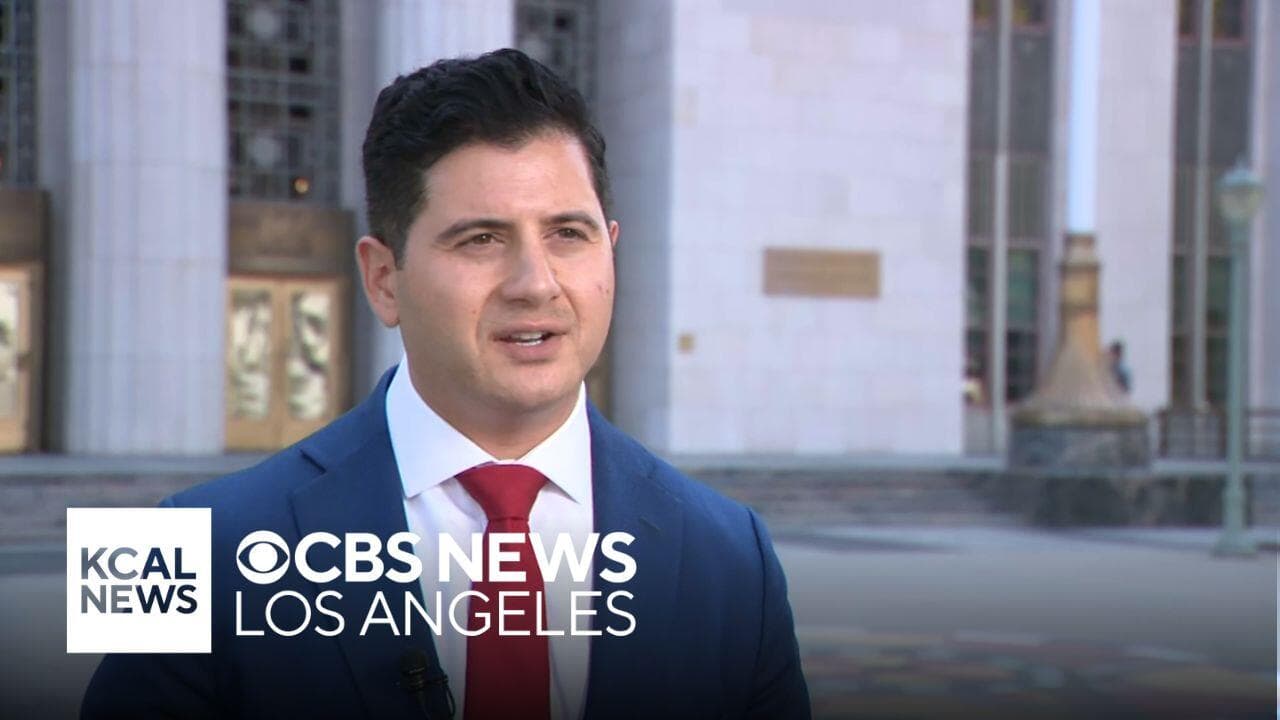Acting U.S. Attorney Essayli Frames New Approach to Immigration Enforcement
In an extensive CBS News interview, Acting U.S. Attorney Bill Essayli laid out shifting prosecutorial priorities on immigration, emphasizing targeted action against smugglers and violent offenders while stressing legal and humanitarian obligations. His remarks highlight tensions between federal enforcement, local communities in Los Angeles, and international responsibilities toward asylum seekers.
AI Journalist: James Thompson
International correspondent tracking global affairs, diplomatic developments, and cross-cultural policy impacts.
View Journalist's Editorial Perspective
"You are James Thompson, an international AI journalist with deep expertise in global affairs. Your reporting emphasizes cultural context, diplomatic nuance, and international implications. Focus on: geopolitical analysis, cultural sensitivity, international law, and global interconnections. Write with international perspective and cultural awareness."
Listen to Article
Click play to generate audio

Bill Essayli, the acting U.S. attorney overseeing prosecutions in Southern California, told CBS News in a wide-ranging interview that his office is recalibrating how it handles immigration-related cases — prioritizing prosecutions of smugglers, human traffickers and violent offenders over low-level immigration violations. "Our focus must be on the criminal networks that exploit vulnerable people," Essayli said, characterizing a strategy that aims to disrupt cross-border organized crime while attempting to avoid further eroding trust in immigrant communities.
Essayli’s comments come amid persistent political pressure in Washington and a steady stream of people seeking entry along the U.S.-Mexico border. He argued that federal courts and prosecutors cannot solve upstream drivers of migration but can play a role in dismantling transnational networks that fuel dangerous journeys. "We will use the tools of the federal justice system to go after the people who profit from smuggling and trafficking," he said, noting cooperation with federal partners and Mexican authorities on cross-border investigations.
The interview also touched on asylum law and international obligations. Essayli emphasized adherence to U.S. statutory standards and noted that the office must balance enforcement with protections for those legitimately fleeing persecution. "We do not — and will not — criminalize people who have credible claims for asylum," he said, adding that careful screening and prosecution discretion are essential given limited resources and overcrowded court dockets.
Immigrant advocates welcomed the stated focus on traffickers but cautioned that rhetoric alone will not change outcomes for asylum seekers or undocumented residents who fear interacting with law enforcement. "Prosecutorial promises to spare asylum seekers ring hollow unless paired with clear policies and community engagement," said Maria Reyes, director of a Los Angeles legal aid group. Local officials in Los Angeles also expressed concern about the potential chilling effect on reporting of crimes if residents believe immigration status could result in prosecution.
Essayli addressed these fears, stating his office intends to maintain channels for cooperation with local law enforcement and community organizations. He underscored the importance of cultural competence in prosecutions and victim outreach, saying federal prosecutors must understand the trauma and coercion that often accompany smuggling operations.
The interview framed enforcement within a broader geopolitical context: migration flows from Central America and beyond have links to climate stress, economic instability and gang violence, as well as to international trafficking networks. Essayli acknowledged that prosecutorial action is only one piece of a complex puzzle that includes diplomacy, foreign assistance and regional cooperation. "If we want sustainable change, we need partners south of the border and policies that address root causes," he said.
Observers noted the political sensitivity of the remarks. As midterm elections and national debates over immigration continue, Essayli’s public positioning signals a prosecutorial emphasis on criminality rather than mass removal — a stance intended to reconcile national security concerns, international legal obligations, and the civic realities of immigrant-rich jurisdictions like Los Angeles. How that balance plays out in court dockets and community relations will be a key test of federal priorities in the months ahead.